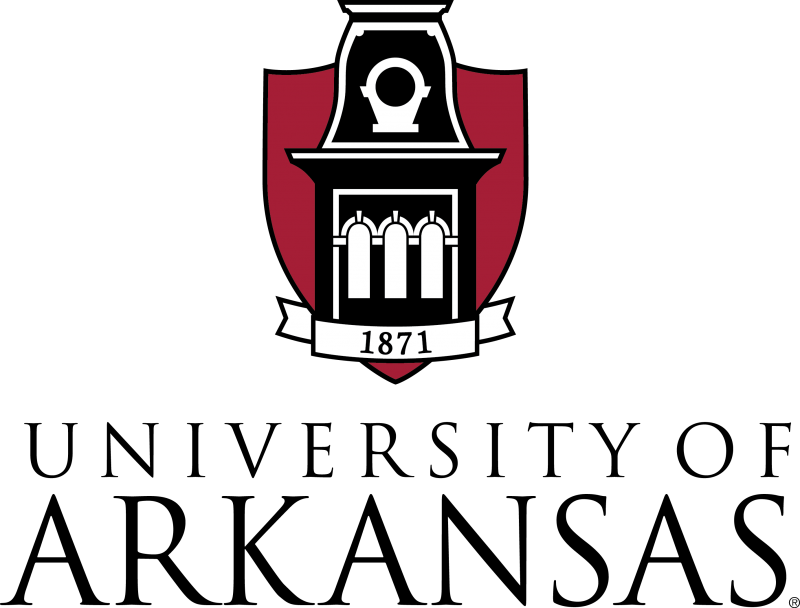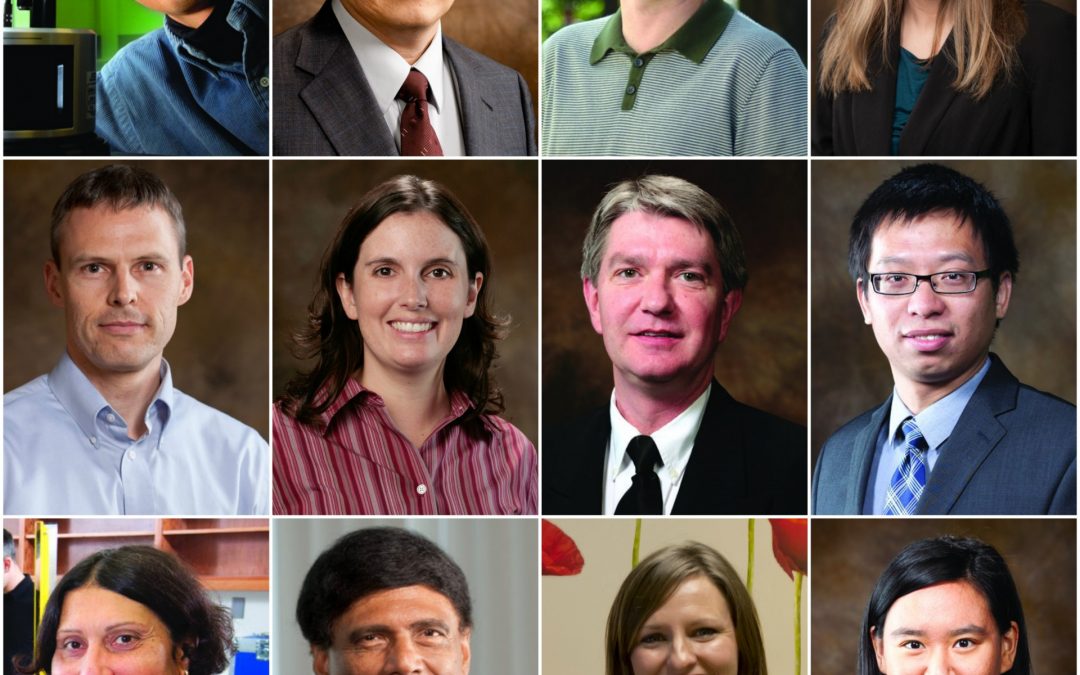Biological and Agricultural Engineering
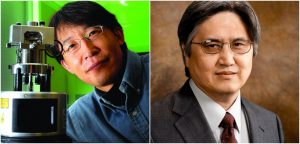 PROFESSOR JIN-WOO KIM is working on a method to detect even small numbers of cancer cells in the blood—the first sign of metastasis. Kim arranges nanoparticles into structures, called plasmonics, which respond to specific wavelengths of light. He hopes to use these to create a non-invasive method to diagnose and treat cancer. PROFESSOR YANBIN LI’s research helps keep food safe from contamination. He develops different types of biosensors, which are used to detect foodborne pathogens. He also looks at ways to reduce the risk of microbial contamination in poultry products, including risk assessment models and antimicrobial technologies.
PROFESSOR JIN-WOO KIM is working on a method to detect even small numbers of cancer cells in the blood—the first sign of metastasis. Kim arranges nanoparticles into structures, called plasmonics, which respond to specific wavelengths of light. He hopes to use these to create a non-invasive method to diagnose and treat cancer. PROFESSOR YANBIN LI’s research helps keep food safe from contamination. He develops different types of biosensors, which are used to detect foodborne pathogens. He also looks at ways to reduce the risk of microbial contamination in poultry products, including risk assessment models and antimicrobial technologies.
Chemical Engineering
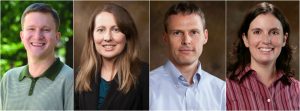 PROFESSOR BOB BEITLE’s research on drug-producing bacteria led to the establishment of Boston Mountain Biotech, LLC. He is currently researching algae based growth mediums for this process, and looking at ways to use skin-binding proteins to improve the performance of anti-fungal medications. ASSOCIATE PROFESSOR CHRISTA HESTEKIN uses a technique called microchannel electrophoresis to analyze the amyloid beta proteins that are associated with Alzheimer’s disease. By separating and studying the oligomeric forms of these proteins, she hopes to learn more about how they contribute to the disease. ASSOCIATE PROFESSOR KEITH ROPER is studying the way different biomarkers, strands of DNA or amino acids that are particular to cancer cells, interact with light. His goal is to be able to make a tiny device that could be used externally to monitor the bloodstream for these biomarkers. Roper holds the Charles W. Oxford Endowed Professorship in Emerging Technologies. ASSISTANT PROFESSOR SHANNON SERVOSS is studying the use of peptoids to treat Alzheimer’s disease. Peptoids, synthesized molecules that mimic proteins, inhibit the formation of the amyloid beta plaques that are associated with Alzheimers and could reduce toxic species. Servoss holds the Ralph E. Martin Endowed Professorship in Chemical Process Engineering.
PROFESSOR BOB BEITLE’s research on drug-producing bacteria led to the establishment of Boston Mountain Biotech, LLC. He is currently researching algae based growth mediums for this process, and looking at ways to use skin-binding proteins to improve the performance of anti-fungal medications. ASSOCIATE PROFESSOR CHRISTA HESTEKIN uses a technique called microchannel electrophoresis to analyze the amyloid beta proteins that are associated with Alzheimer’s disease. By separating and studying the oligomeric forms of these proteins, she hopes to learn more about how they contribute to the disease. ASSOCIATE PROFESSOR KEITH ROPER is studying the way different biomarkers, strands of DNA or amino acids that are particular to cancer cells, interact with light. His goal is to be able to make a tiny device that could be used externally to monitor the bloodstream for these biomarkers. Roper holds the Charles W. Oxford Endowed Professorship in Emerging Technologies. ASSISTANT PROFESSOR SHANNON SERVOSS is studying the use of peptoids to treat Alzheimer’s disease. Peptoids, synthesized molecules that mimic proteins, inhibit the formation of the amyloid beta plaques that are associated with Alzheimers and could reduce toxic species. Servoss holds the Ralph E. Martin Endowed Professorship in Chemical Process Engineering.
Computer Science and Computer Engineering
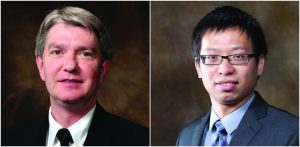 ASSOCIATE PROFESSOR PAT PARKERSON is collaborating with industry and medical professionals to develop devices to help people with disabilities communicate using small gestures or eye movements. He is looking for ways to make these devices as useful and efficient as possible. ASSISTANT PROFESSOR TINGXIN YAN is developing mobile health systems—tools that help people maintain a healthy lifestyle. Yan is looking at ways to create devices that measure vital signs and communicate health information to patients’ phones and healthcare providers. His research focuses on making these devices accurate, efficient and easy to wear and use.
ASSOCIATE PROFESSOR PAT PARKERSON is collaborating with industry and medical professionals to develop devices to help people with disabilities communicate using small gestures or eye movements. He is looking for ways to make these devices as useful and efficient as possible. ASSISTANT PROFESSOR TINGXIN YAN is developing mobile health systems—tools that help people maintain a healthy lifestyle. Yan is looking at ways to create devices that measure vital signs and communicate health information to patients’ phones and healthcare providers. His research focuses on making these devices accurate, efficient and easy to wear and use.
Electrical Engineering
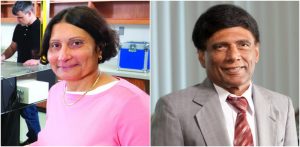 PROFESSOR MAGDA EL-SHENAWEE’s lab features a unique combination of equipment to perform terahertz imaging. El-Shenawee is researching the use of this type of imaging to examine the margins of breast cancer tumors. This will help surgeons and pathologists make sure they have removed the entire tumor during surgery. DISTINGUISHED PROFESSOR VIJAY VARADAN is developing wireless health monitoring systems. One of his projects is a vest that monitors and transmits heart rate, blood pressure and other vital signs. Varadan is also developing a system that can monitor brain and heart signals in the hospital, using nanosensors that are integrated into sheets and pillows. Varadan holds the Twenty-First Century Endowed Graduate Research Chair in Nano, Bio and Medical Technology
PROFESSOR MAGDA EL-SHENAWEE’s lab features a unique combination of equipment to perform terahertz imaging. El-Shenawee is researching the use of this type of imaging to examine the margins of breast cancer tumors. This will help surgeons and pathologists make sure they have removed the entire tumor during surgery. DISTINGUISHED PROFESSOR VIJAY VARADAN is developing wireless health monitoring systems. One of his projects is a vest that monitors and transmits heart rate, blood pressure and other vital signs. Varadan is also developing a system that can monitor brain and heart signals in the hospital, using nanosensors that are integrated into sheets and pillows. Varadan holds the Twenty-First Century Endowed Graduate Research Chair in Nano, Bio and Medical Technology
Industrial Engineering
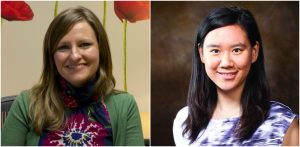 ASSISTANT PROFESSOR ASHLEA BENNETT MILBURN is applying operations research techniques to a broad range of topics in health and humanitarian logistics with the goal of making healthcare systems and disaster relief systems more efficient, effective and equitable. As part of the Center for Innovation in Healthcare Logistics, she is identifying best practices in home health supply chains. She is looking for ways to reduce the time home health nurses spend on supply chain duties and travel so they can spend more time with patients. ASSISTANT PROFESSOR SHENGFAN ZHANG looks at medical decision making, especially in the area of breast cancer. She examines statistical data to find out what influences women’s decisions to get screened for breast cancer, and she is using mathematical modeling to develop personalized screening and treatment recommendations.
ASSISTANT PROFESSOR ASHLEA BENNETT MILBURN is applying operations research techniques to a broad range of topics in health and humanitarian logistics with the goal of making healthcare systems and disaster relief systems more efficient, effective and equitable. As part of the Center for Innovation in Healthcare Logistics, she is identifying best practices in home health supply chains. She is looking for ways to reduce the time home health nurses spend on supply chain duties and travel so they can spend more time with patients. ASSISTANT PROFESSOR SHENGFAN ZHANG looks at medical decision making, especially in the area of breast cancer. She examines statistical data to find out what influences women’s decisions to get screened for breast cancer, and she is using mathematical modeling to develop personalized screening and treatment recommendations.
